 Iran’s Attack on Israel
Iran’s Attack on Israel
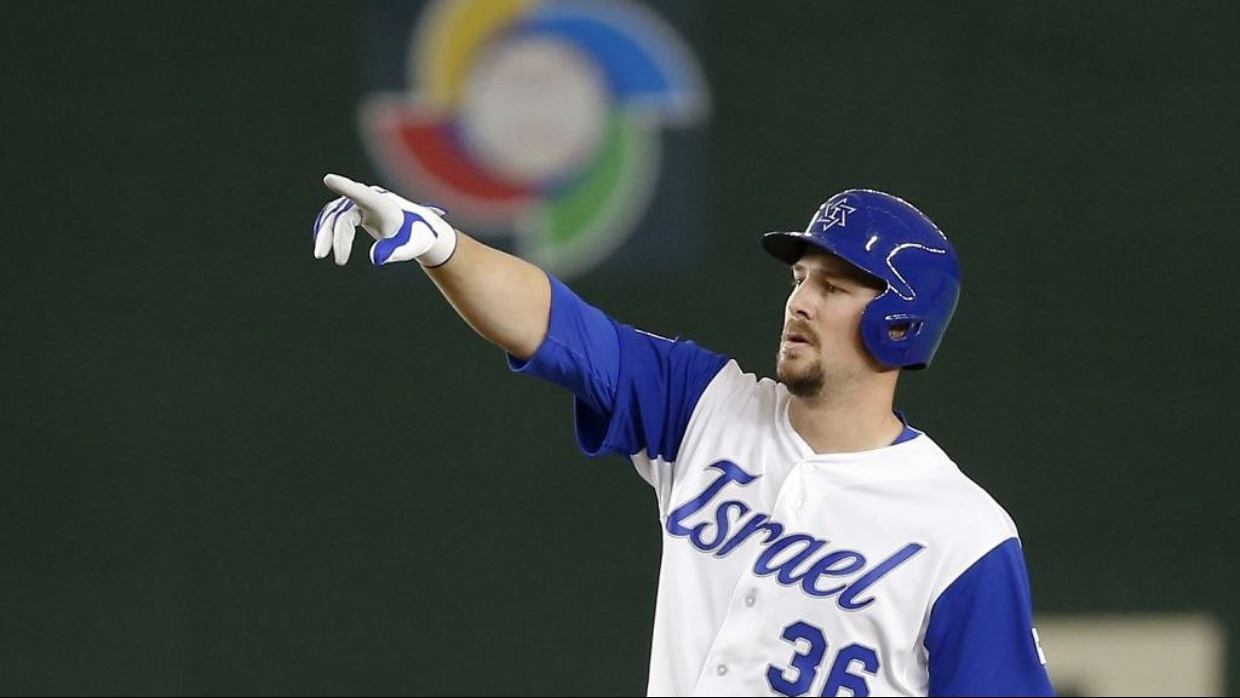

8 min read
Becoming a baseball star fulfilled his childhood dream and now the former Team Israel captain is deepening his Jewish identity.
Playing for eight major league baseball teams and winning the World Series, Ryan Lavarnway fulfilled his childhood dream of becoming a professional baseball player. “I decided when I was five years old that I was going to make it to the major leagues,” Lavarnway said in an Aish.com interview. “It wasn’t a pipe dream or a fantasy – it was what was going to happen, no ifs ands or buts.”
Lavarnway’s upbringing was no more Jewish than Chinese food on Christmas. There were the occasional Hanukkah candle lightings, but he never had a Bar Mitzvah or went to Sunday School. His kindergarten teacher encouraged him to start playing baseball; she felt he was bad at sharing and wanted him to learn to be a team player.
His first baseball hero was Mike Piazza. “I was seven and didn’t want to pick up the balls after batting practice. My dad said, ‘Okay, we're going to go to a Dodger’s game. We're going to get there early and watch batting practice. If Piazza is not too cool to pick up baseballs, then you're not too cool to pick up baseballs.’ For the rest of my life, I always thought that if Mike Piazza picks up balls, so can I.”
I loved thinking about the deep questions. We definitely had different conversations at the dining hall and the dugout at Yale than other teams were most likely having.
His passion for literature and baseball led him to Yale, where he majored in Philosophy and played for the Yale Bulldogs. “I loved thinking about the deep questions. We definitely had different conversations at the dining hall and the dugout at Yale than other teams were most likely having. At Yale, I was around other driven, motivated people.”
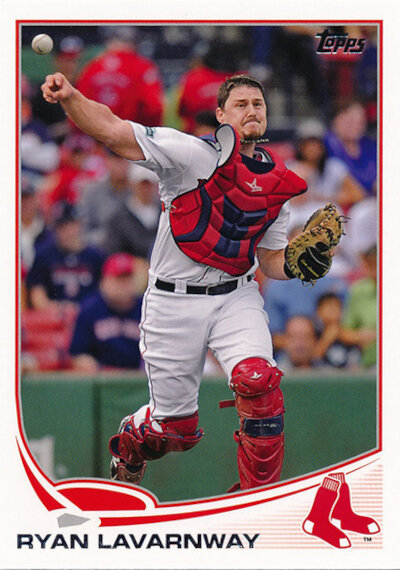
Athletes and high-achieving students have more in common than is typically portrayed in pop culture. “They hold themselves to a standard. And it's very parallel to the standard that professional athletes hold themselves to,” Ryan says. “There's a great quote from Kobe Bryant: ‘If you're lazy, I can't relate to you.’ Professional athletes all feel that way. In a similar way, Ivy League students have that kind of motivation. It was really nice to be around other people that were very motivated.”
When Ryan wasn’t waxing philosophical with his teammates and friends in the dining hall, he was breaking records on the baseball field. After playing right field for most of his life, in his sophomore year, he moved to catcher. "I knew it would provide the best opportunity to reach the major leagues,” Lavarnway explained. That year, he won the batting title and broke every Ivy League record imaginable. This major achievement was just another small step to achieving his goal of playing in the major leagues.
Lavarnway was picked by the Boston Red Sox and in 2013 he and the team won the World Series. He then bounced around from team to team for several years. His lifelong dream of playing baseball necessitated moving 56 times in 12 years. “In a lot of ways, we didn't find a deep sense of community anywhere. We had our families, we had our friends that we kept in touch with, whether they were on the current team or not. That might have something to do with why I craved community so deeply.”
That community he craved so deeply came in the form of a call from Israel’s national baseball team when they asked him if he wanted to compete with Team Israel in the 2017 World Baseball Classic, an international baseball tournament that pitted Israel against the best baseball players every other country had to offer. This would be Israel’s first time at the tournament; ESPN considered Team Israel to be the biggest underdog in the tournament, with little chance of advancing past the first round. But like the story of David and Goliath, Team Israel, with Lavarnway leading the charge, placed sixth place in the tournament, defeating many of the best teams in the world.
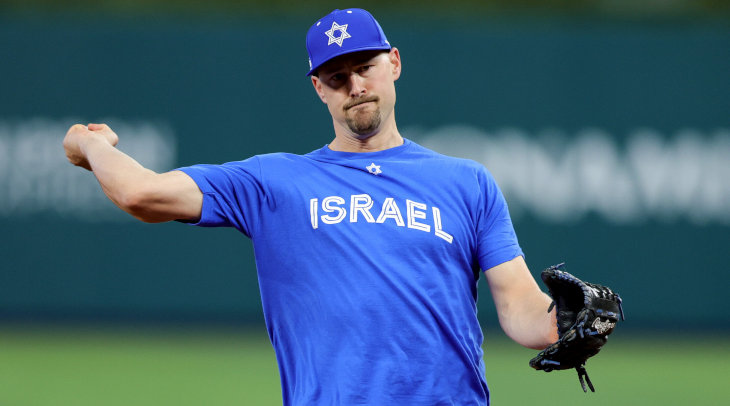
Playing for Israel brought a new set of challenges for Ryan and some of his fellow major league teammates started looking at him differently. “One time in the locker room, a Christian teammate told me that if we’re going to stay friends, he needed to let me know I was wrong for supporting and playing for Israel, and I responded ‘Then we’re not going to be friends.’ It was the first time that I really experienced antisemitism in a way that I internalized and didn't shy away from or disassociate with. There was a feeling of understanding that as I took the bad, I could accept the good that came with finding my place within the Jewish community as well.”
In Israel I discovered that I can be a proud public Jew who encourages people to lean into their sense of community and support each other.
His trip to Israel that year changed his life. His first time in the homeland, he visited the Western Wall, which Ryan described as being “the first place I ever felt God.” He went to the Yad Vashem, Israel’s Holocaust Memorial Museum and felt a deep connection to the tragic history of the Jewish people, and floated on the Dead Sea. After each game, Jewish fans sought him out to express their thanks. “People look to athletes for representation. In Israel I discovered that I can be a proud public Jew who encourages people to lean into their sense of community and support each other. And when we lean into our community and support each other, we don't feel as isolated.”
Baseball with Team Israel felt different for Ryan. “I think the Jewish sentiment is that we feel like a culture of underdogs. And similar to second generation immigrants to this country, where they feel like underdogs, they feel like they need to prove themselves. I think that is what leads to the culture of striving for excellence and motivation as much as anything.”
Today Ryan is moving on to new ventures, like the new children’s book he wrote, “Baseball & Belonging.”
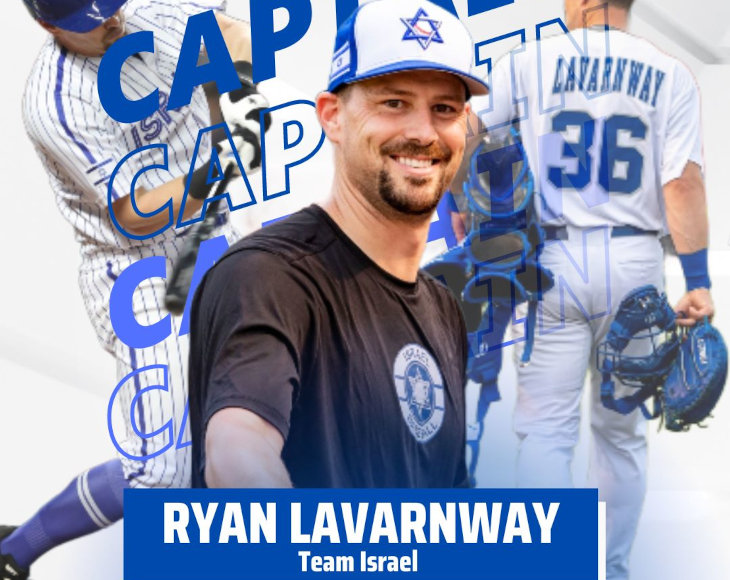
“I'm transitioning out of baseball now and back into ‘the real world’. It's a difficult transition mentally. Most people never get to be the best in the world at what they love to do. And I was one of the best. But there's something about playing every night on a level playing field. And the fact that, especially me going up and down so many times (from the majors to the minors), I had to earn my right to be there. There's something so fair about the sport with defined rules where life isn't always fair.”
Real life doesn’t work that way, Ryan explains. “Some people won the game before they were born because their family won it for them. And some people are super talented and never get an opportunity. There's something about baseball that is so beautiful and so incredible to be a part of. You know the rules, and you know what the goal is and the outcome that you're looking for. You know whether you won or lost, whether you personally helped the team or not.”
He reminisced about a time following a big game in Korea, “My arm hurt, so they brought this doctor in to help me get ready for the game. He happened to be an Orthodox Jew from Baltimore. His name was Yoni and he said to me, ‘It doesn't matter if you guys win a game or not. The fact that the Israeli flag is hanging on a level with the other countries' flags means no one can deny our right to exist because we earned our way here fair and square.’ That's why, in my book, you can see all the flags on the same level. That was a really important visual for me as well, all because of that conversation with Yoni.”
His decision to foray into the world of children’s literature comes a year after the birth of his daughter Blake, who was a major inspiration for the book. “I want her to feel like she belongs in a bigger context than just the four walls of our house.”
Do what you love and find where you belong.
“To me, the most powerful page of my children's book is the one that says, More than anything, he felt a growing sense of pride. People said you're one of us. Welcome to the tribe. That's really what I experienced, I finally felt a part of something bigger, like I had found my community.”
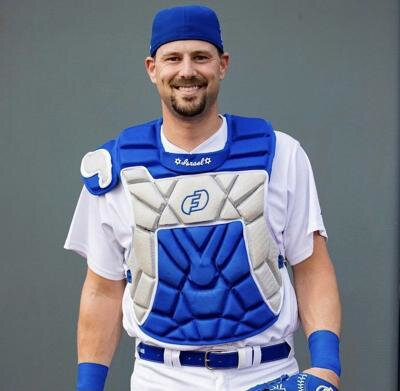
The Lavarnways now light Shabbat candles and say prayers every Friday as a family. They eat matzah ball soup, which Ryan describes as “the gateway drug to Judaism.” They celebrated their first Passover Seder during Covid. “I see how giving them that traditional cultural experience can be so meaningful, especially coming from my lack of having it. When I found my Judaism and my place in the community, it felt like it filled a hole inside of me that I didn't fully realize was there.”
Beyond the crack of the bat and the cheers of the crowd, Ryan wanted something more. Baseball was his lifelong dream, but playing for Israel and for his people gave him a new sense of purpose. “My hope with the book can be expressed in how I sign every copy: ‘Do what you love and find where you belong.’”

I received a call from my grandson and he said Zaida I know how much you love Israel, they are sending a team in Baseball, My grandson set me up for television couverge and Both of us are super fans we have not missed a game, including with our super mascot The Mensch on The Bench, which a have a smaller version of it. I remember I think it was korean journalist who wanted to know more about the mascot than the team itself. Every now and then I go on u-tube to see past games.I think that you guys are like Israeli warriors, I cannot wait for the next game. I also watched the documentries when Mr Kraft brought everyone to Israel to experience the country and to bond with the kids of Israel, the future of baseball in Israel. I can relate to the feeling that you were inspired by.